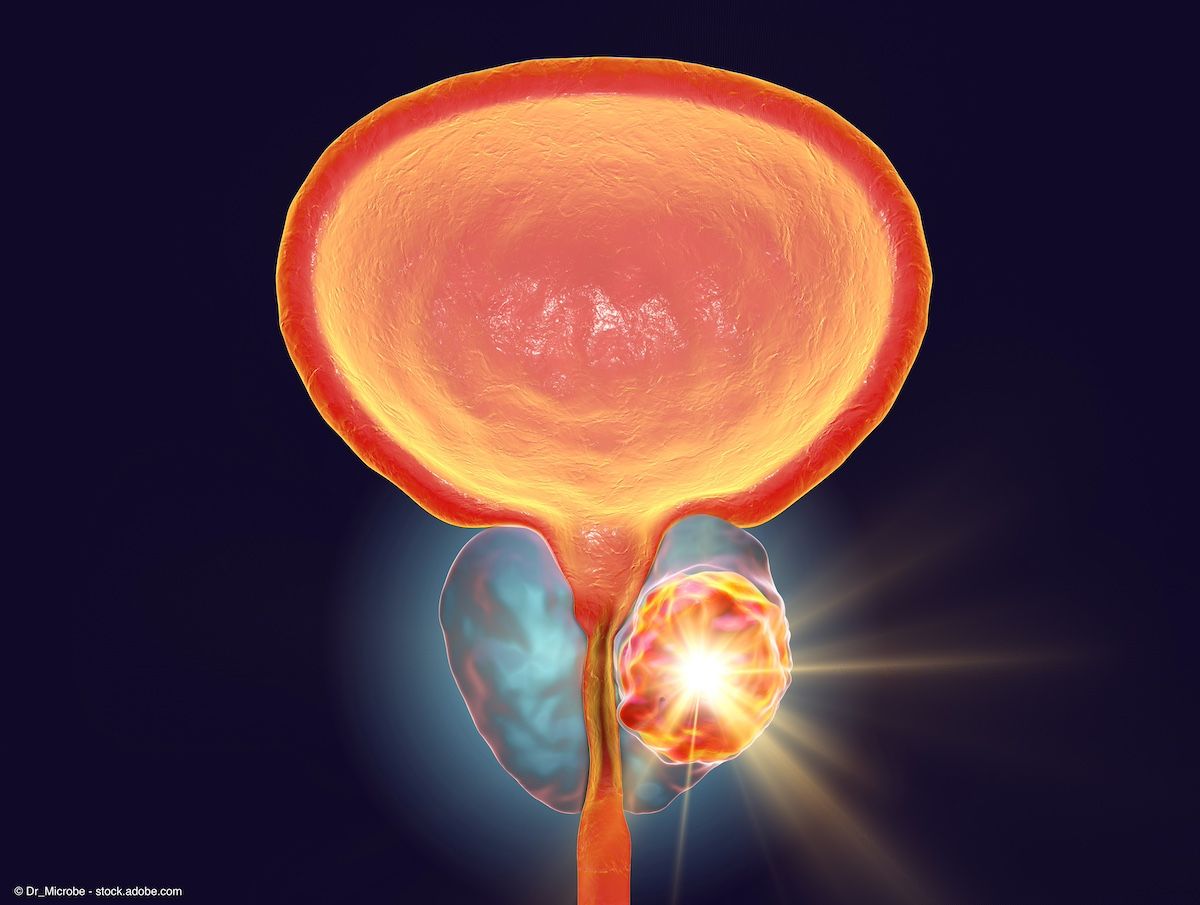Article
Study yields genetic clues to identifying aggressive prostate cancer in men of African ancestry
Author(s):
Researchers identified 9 novel susceptibility loci for prostate cancer, 7 of which were substantially more prevalent in patients of African ancestry.
Results of a meta-analysis consisting of 10 genome-wide association studies identified 9 novel susceptibility loci for prostate cancer, 7 of which were substantially more prevalent in patients of African ancestry, suggesting the potential clinical utility of a multi-ancestry polygenic risk score (PRS) for determining the risks of developing aggressive or nonaggressive disease.1
“Because this study population is also representative of other populations of African ancestry from other parts of the world, we think our findings are widely generalizable to those populations of African ancestry as well,” said Fei Chen, PhD.

The novel susceptibility loci included an African-specific stop-gain variant in the prostate-specific gene ANO7. Additionally, the minor alleles for 5 of 9 novel risk variants positively correlated with prostate cancer risk, with per-allele odds ratios [ORs] ranging from 1.09 to 1.12. Investigators noted that 4 of these variants were significantly more common in the African ancestry population compared with others, 3 of which are rare in European and Asian populations.
Major alleles for 4 of the risk variants correlated with prostate cancer risk, 3 of which were polymorphic only in African ancestry populations. For all but 1 novel risk variant, minor allele frequencies were more common in patients with higher proportions of African ancestry.
“Genetic factors are important determinants of prostate cancer risk, and the common genetic risk variants identified so far are potentially useful for identification of high-risk populations, and for early detection of aggressive disease,” lead author Fei Chen, assistant professor in the Department of Population and Public Health Sciences at Keck School of Medicine of the University of Southern California, said in an interview with Urology Times’ sister site CancerNetwork.
A multi-ancestry PRS that included 278 variants highlighted a 3.19-fold (95% CI, 3.00-3.40) risk of prostate cancer for patients in the top 10% category and a 5.75-fold (95% CI, 5.06-6.53) risk for patients in the top 1% compared with those who had an average genetic risk in the 40% to 60% range. Investigators replicated PRS associations in an independent sample of African ancestry through the Men of African Descent and Carcinoma of the Prostate Network, which included an OR of 3.52 (95% CI, 2.12-5.84) for patients in the top 10% and an OR of 7.55 (95% CI, 2.42-23.6) for those in the PRS’ top 1%.
The PRS showed a stronger association with aggressive disease (OR, 3.95; 95% CI, 3.55-4.39) compared with nonaggressive disease (OR, 3.08; 95% CI, 2.87-3.31) for patients in the top vs average PRS decile. Investigators noted that this association was similar across individual studies including African and non-African countries.
Although the meta-analysis was designed as an international study, Chen stated that the inclusion of patients from North America, Europe, the Caribbean, and Africa make the findings applicable to those residing within the United States.
“Because this study population is also representative of other populations of African ancestry from other parts of the world, we think our findings are widely generalizable to those populations of African ancestry as well,” Chen said.
Investigators of this genome-wide association study meta-analysis included 19,378 patients with prostate cancer and a control group consisting of 61,620 patients of African ancestry. Additionally, PRS was identified through summing variant-specific weighted allelic dosages from 269 known and 9 novels risk variants with multi-ancestry weights from a previous transancestry genome-wide association study.
Investigators considered prostate cancer aggressive if it possessed 1 or more of the following qualities: stage T3 or T4 tumors, regional lymph node involvement, metastatic disease, a Gleason score of at least 8.0, a prostate-specific antigen level of 20 ng/ml or more, or if the disease was the underlying cause of death for a patient.
Based on the data, Chen spoke about how oncologists can work to mitigate the risks for prostate cancer in African ancestry populations. Although there is “no other modifiable risk factor that has consistently showed association with prostate cancer risk,” Chen emphasized how doctors can advise patients on their lifestyle habits to reduce the likelihood of a prostate cancer diagnosis.
“There is increasing evidence suggesting that obesity may be associated with an increased risk of aggressive prostate cancer,” Chen said. “It may be beneficial for the doctors to educate their patients about being maintaining a healthy weight.”
Reference
1. Chen F, Madduri RK, Rodriguez AA, et al. Evidence of novel susceptibility variants for prostate cancer and a aultiancestry polygenic risk score associated with aggressive disease in men of African Ancestry. Eur Urol. Published online February 27, 2023. doi:10.1016/j.eururo.2023.01.022
Newsletter
Stay current with the latest urology news and practice-changing insights — sign up now for the essential updates every urologist needs.









